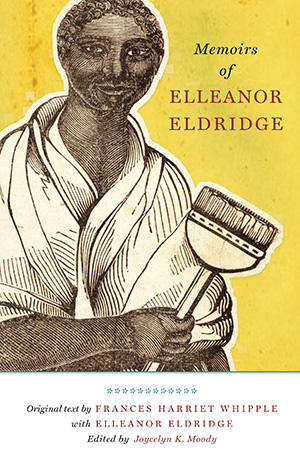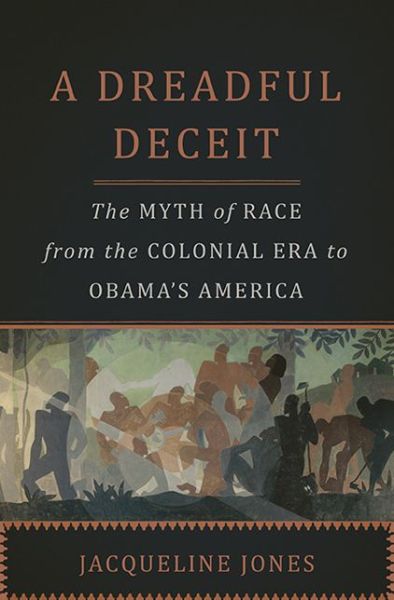Memoirs of Elleanor EldridgePosted in Autobiography, Books, History, Law, Media Archive, Monographs, United States, Women on 2013-12-26 04:01Z by Steven |
West Virginia University Press
December 2013
160 pages
Cloth ISBN: 978-1-935978-24-4
Paperback ISBN: 978-1-935978-23-7
ePub ISBN: 978-1-935978-25-1
PDF ISBN: 978-1-938228-64-3
Original Text by Frances Harriet Whipple (1805-1878) with Elleanor Eldridge (1794-1862)
Edited by:
Joycelyn K. Moody, Sue E. Denman Distinguished Chair in American Literature and Professor of English
University of Texas, San Antonio
Elleanor Eldridge, born of African and US indigenous descent in 1794, operated a lucrative domestic services business in nineteenth century Providence, Rhode Island. In defiance of her gender and racial background, she purchased land and built rental property from the wealth she gained as a business owner. In the 1830s, Eldridge was defrauded of her property by a white lender. In a series of common court cases as defendant and plaintiff, she managed to recover it through the Rhode Island judicial system. In order to raise funds to carry out this litigation, her memoir, which includes statements from employers endorsing her respectable character, was published in 1838. Frances Harriet Whipple, an aspiring white writer in Rhode Island, narrated and co-authored Eldridge’s story, expressing a proto-feminist outrage at the male “extortioners” who caused Eldridge’s loss and distress.
With the rarity of Eldridge’s material achievements aside, Memoirs of Elleanor Eldridge forms an exceptional antebellum biography, chronicling Eldridge’s life from her birth. Because of Eldridge’s exceptional life as a freeborn woman of color entrepreneur, it constitutes a counter-narrative to slave narratives of early 19th-century New England, changing the literary landscape of conventional American Renaissance studies and interpretations of American Transcendentalism.
With an introduction by Joycelyn K. Moody, this new edition contextualizes the extraordinary life of Elleanor Eldridge—from her acquisition of wealth and property to the publication of her biography and her legal struggles to regain stolen property. Because of her mixed-race identity, relative wealth, local and regional renown, and her efficacy in establishing a collective of white women patrons, this biography challenges typical African and indigenous women’s literary production of the early national period and resituates Elleanor Eldridge as an important cultural and historical figure of the nineteenth century.
Read the original text from 1838 here.



